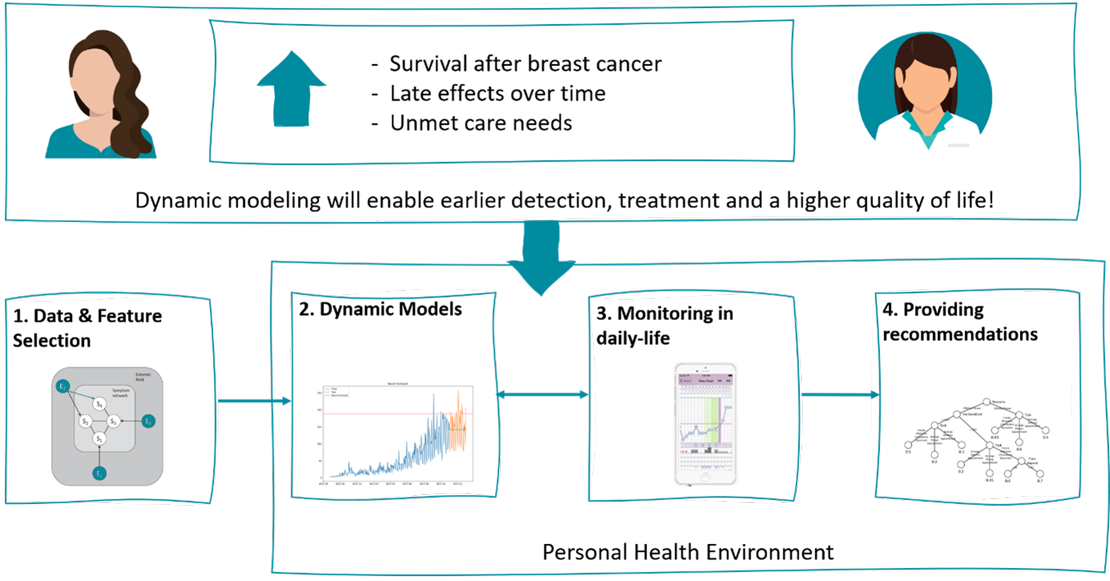People involved from BSS
The incidence of cancer is increasing. Fortunately, because of earlier detection and better treatments, mortality is decreasing. In 2030, over 1 million people in the Netherlands will have (had) cancer. Cancer greatly impacts an individual and their environment and such impact does not end after treatment: over 90% of breast cancer patients will experience late effects. This means ongoing health problems, such as persistent pain (up to 89%), cardiac events (11%, incl. severe congestive heart failure), severe symptoms of depression (approximately 20%) and extreme fatigue (over 30%). These late effects have a highly negative impact on the quality of life, social and work participation and ultimately on society.
Scheduled follow-up visits do take place. However, a report by the Netherlands Comprehensive Cancer Organisation (IKNL) revealed that many patients are not adequately treated or supported to deal with late effects; there are high unmet patient needs with regard to information, detection and management of the symptoms. The impact of late effects is becoming more prominent as the survival rate continues to increase. However, with the rising numbers at risk, we cannot afford more intensive follow-up to deal with these challenges and need to search for other tailored solutions.
In this project, new dynamic models will be developed that provide accurate individualized predictions for the risk of late effects over time and define methods to monitor patients in daily life from a holistic view, implement such models to detect and predict changes in their health status and provide a framework for personal recommendations, leading to earlier and more effective treatment and optimization of the quality of life after cancer.

The project is funded by a NWO-ZonMW Veni grant for dr. Annemieke Witteveen.

